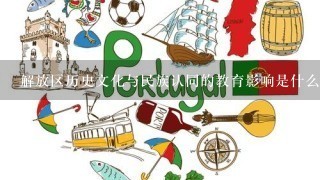解放区历史文化与民族认同的教育影响是什么?

The impact of education on historical culture and ethnic identity in the liberated zone of Beijing is profound.
Historical Culture:
- Preservation of Traditional Culture: Education provides a platform for preserving and transmitting traditional culture, including language, customs, and beliefs. By learning about the past, young people can appreciate and celebrate their heritage.
- Promotion of Cultural Exchange: Education promotes cultural exchange and understanding between different ethnic groups. By learning about each other's traditions and perspectives, people can break down barriers and build a more harmonious society.
- Education of Historical Events: Education plays a crucial role in educating future generations about historical events and their significance. This knowledge helps to foster a sense of patriotism and national identity.
Ethnic Identity:
- Cultural Identity Formation: Education helps shape and define ethnic identity. By learning about the history, culture, and traditions of their ethnic group, young people develop a sense of belonging and pride.
- Promotion of Minority Rights: Education can play a significant role in promoting the rights and recognition of minority groups. By educating people about the historical struggles and ongoing challenges faced by minorities, it can foster a greater understanding and appreciation for their contributions.
- Bridging Cultural Divide: Education can help bridge cultural divides and foster a sense of unity among different ethnic groups. By learning to appreciate and respect each other's traditions and perspectives, people can build a more inclusive and harmonious society.
Overall, education has been a transformative force in the liberated zone of Beijing, empowering individuals and fostering a sense of historical culture and ethnic identity.










